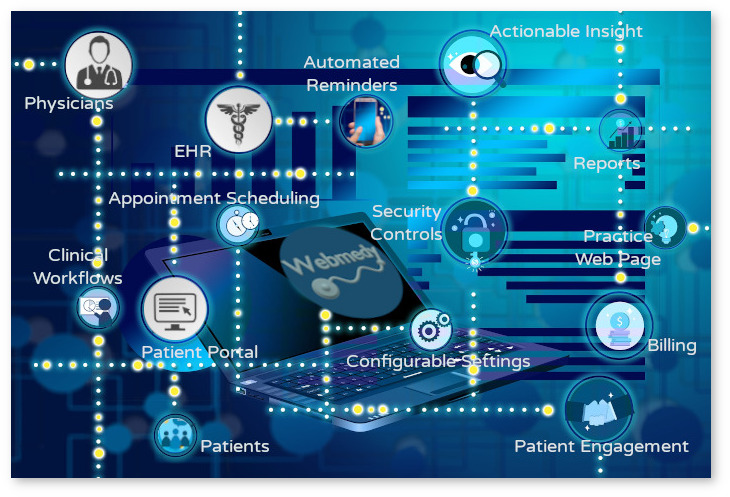Introduction
Legal practice, with mountains of paperwork, client records, and court schedules, can be rather exhausting. The situation is even worse for lawyers who deal with cases related to healthcare as they need to study hundreds of medical records that not only contain myriads of specific medical terms but are frequently almost incomprehensive because of handwriting. Fortunately, modern technologies offer many tools that can help lawyers make their routine work with documents quicker and more efficient. One of them is Electronic Medical Record (EMR) systems, which are now widely used in the healthcare sector.
What Are EMR Systems?
EMR systems are digital platforms for healthcare workers where the latter can store, manage, and access patient records. Instead of making notes in dozens of cards and forms, nurses and doctors can simply add new information to patients’ profiles via computer. The implication of such systems has made the process of document management much easier and more effective. Now, healthcare workers should not spend hours filling out piles of documents about each patient and can easily find the information they need with a few clicks. More than that, if a patient from another state gets into a hospital, healthcare workers do not need to call other healthcare establishments trying to get at least some information about the patient’s previous diagnoses. Generally, the EMR systems:
- Securely store and organize vast amounts of data, including patient records, medical history, and treatment plans. Paper documents may get lost or damaged, and it may take hours to find them among others. Meanwhile, digital databases make this process a matter of seconds.
- Allow the creation and maintenance of patient profiles that include information about demographics, appointment history, and insurance information. Just a few clicks — and a nurse knows everything about the patient’s history of illness.
- Improve clinical workflows by automating tasks, such as scheduling appointments, sending reminders, and managing prescriptions. Patients may forget when they had the last appointment with their cardiologist or the last medical check-up, but the system keeps this information for a long time.
- Provide tools for clinical data analysis and report generation. Asking a special app to count the number of patients hospitalized within the last month is easier than counting all the records in the journal.
- Improve communication between different healthcare providers and systems and allow secure sharing of patient information across multiple platforms. Now, if a person decides to continue their treatment in another hospital, they don’t need to take all the medical records with them; a new healthcare provider will easily get access to them through the ERM system.
The rich functionality of these systems, such as secure data storage, ease of access, and comprehensive tracking capabilities, can be quite useful in other fields, including legal practice. In particular, attorneys dealing with medical malpractice issues can use the EMR systems as an important source of evidence.
How Can EMR Systems Be Utilized in Legal Practice?
Legal practitioners dealing with medical issues are often overwhelmed with endless medical documents, from nurses’ records to receipts. The use of EMR systems can transform this problem into a paperless solution. Imagine having all the legal documents online, accessible at the click of a button.
Besides, EMR systems safely store client profiles that include contact details, case history, and relevant documents, and the dates of doctor appointments. In such a way, they become an invaluable source of information in cases dealing with medical malpractice.
Finally, EMR systems are built with robust security protocols that protect all sensitive client data from unauthorized access. Therefore, patients should not worry that their personal information can be stolen and used against their interests.
However, while relying on the information from EM systems, lawyers should be aware that not all nurses add information about patients’ assessments every day, and the system may fill it out automatically. It can cause some confusion and misinterpretation of the final results. Therefore, it is always better to double-check all the information the EMR system contains.
How Can a Lawyer Request Records from the EMR System?
To request medical records for an EMR system, a lawyer should obtain written consent from the client. It is a legal requirement that aims to protect patient privacy. Once consent is secured, the lawyer can contact the healthcare providers directly, typically through their medical records department, to submit a formal request. It’s helpful to provide specific details, such as the patient’s name, date of birth, and the type of records needed.
Conclusion
Using EMR systems in one’s legal practice is a huge step forward for lawyers dealing with healthcare-related cases. From offering digital access to legal documents online and enhancing client management to ensuring secure data handling, these systems provide a comprehensive solution to legal practice management. Explore the integration of EMR systems in your practice today and witness the transformation towards a more efficient, organized, and productive environment.






